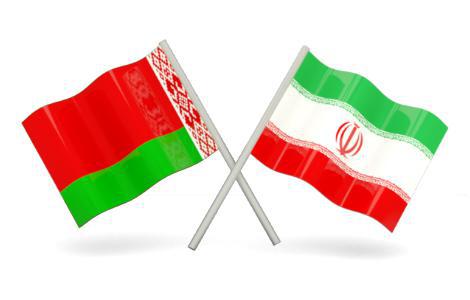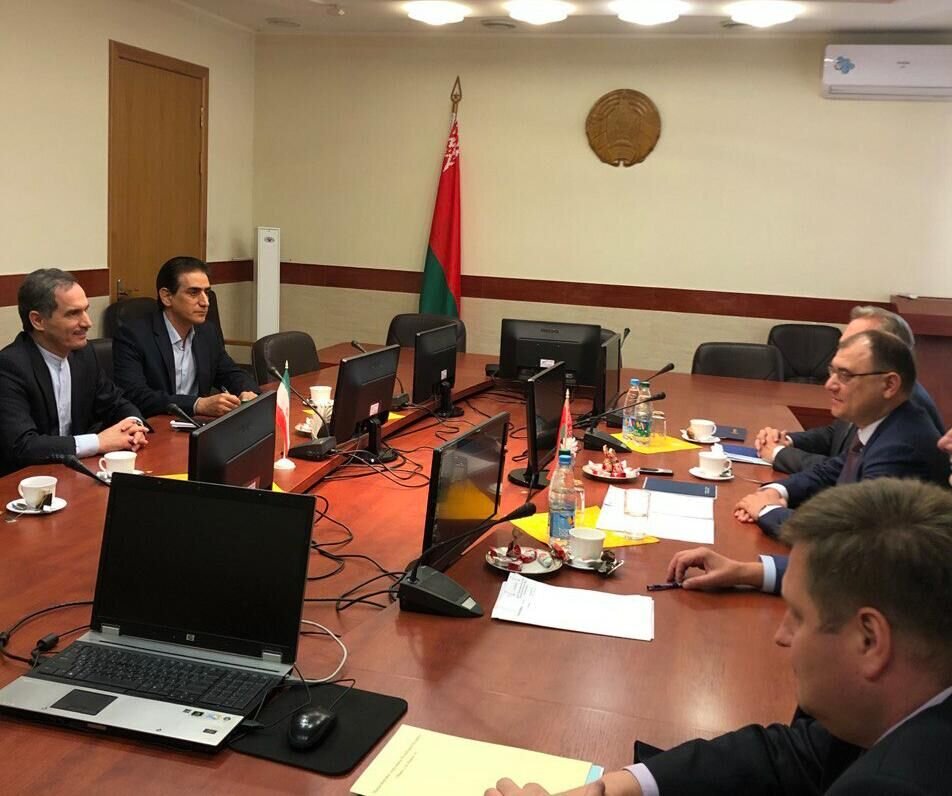
Expansion of energy co-op discussed between Iran, Belarus


During the meeting, Iranian ambassador elaborated on the capacities for boosting Iran-Belarus energy cooperation and emphasized the need for implementing the agreements made between the two sides in the field of energy in the 14th meeting of Iran-Belarus Joint Economic Committee, IRNA reported.
The energy minister of Belarus, for his part, pointed to the history of cooperation between Tehran and Mink in the field of energy as well as the activity of Belarussian Bell Energo Company in Iran and welcomed the expansion of cooperation between the two sides in electricity and gas industries.
The minister also referred to the high capacities of Iranian Company MAPNA, and its noticeable activities in different countries in the world, and said that his country welcomes this company’s implementation of electricity projects in Belarus.
In December 2019, Iran, and Belarus signed an agreement for promoting mutual trade, IRIB reported, quoting the spokesman of the Islamic Republic of Iran Customs Administration (IRICA) as saying.
According to Rohollah Latifi, the agreement was signed by the IRICA Head Mehdi Mirashrafi and the Chairman of Belarus State Customs Committee Yuri Senko on the sidelines of a World Customs Organization (WCO) event in South Korea.
The agreement was signed in line with the implementation of the free trade agreement between Iran and Eurasia, Latifi said, adding that it is aimed for improving the level of cooperation between the two countries and protect the economic and social interests of both sides.
In the mentioned agreement, several important factors including identifying the two sides’ needs, increasing efficiency, customs control of goods, and vehicles in transit between the two countries, have been emphasized.
Belarus for long has been among Iran’s trade partners and the country played a significant role in reaching the trade agreement between Iran and the Eurasian Economic Union (EAEU).
The EAEU is comprised of Russia, Armenia, Belarus, Kazakhstan, and Kyrgyzstan. It is an international organization created with the aim of encouraging regional economic integration through the free movement of goods, services, and people within the union.


Trump weighs using $2 billion in CHIPS Act funding for critical minerals

Codelco cuts 2025 copper forecast after El Teniente mine collapse

Electra converts debt, launches $30M raise to jumpstart stalled cobalt refinery

Barrick’s Reko Diq in line for $410M ADB backing

Abcourt readies Sleeping Giant mill to pour first gold since 2014

Nevada army depot to serve as base for first US strategic minerals stockpile

SQM boosts lithium supply plans as prices flick higher

Viridis unveils 200Mt initial reserve for Brazil rare earth project

Tailings could meet much of US critical mineral demand – study

Kyrgyzstan kicks off underground gold mining at Kumtor

Kyrgyzstan kicks off underground gold mining at Kumtor

KoBold Metals granted lithium exploration rights in Congo

Freeport Indonesia to wrap up Gresik plant repairs by early September

Energy Fuels soars on Vulcan Elements partnership

Northern Dynasty sticks to proposal in battle to lift Pebble mine veto

Giustra-backed mining firm teams up with informal miners in Colombia

Critical Metals signs agreement to supply rare earth to US government-funded facility

China extends rare earth controls to imported material

Galan Lithium proceeds with $13M financing for Argentina project

Kyrgyzstan kicks off underground gold mining at Kumtor

Freeport Indonesia to wrap up Gresik plant repairs by early September

Energy Fuels soars on Vulcan Elements partnership

Northern Dynasty sticks to proposal in battle to lift Pebble mine veto

Giustra-backed mining firm teams up with informal miners in Colombia

Critical Metals signs agreement to supply rare earth to US government-funded facility

China extends rare earth controls to imported material

Galan Lithium proceeds with $13M financing for Argentina project

Silver price touches $39 as market weighs rate cut outlook

















